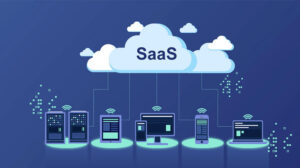Email has been a convenient tool for enterprises in the mobile age. It has enabled smartphone users to send and receive messages on the go, but the email's actual effectiveness as a communication channel is up for debate. Besides not being inherently secure enough to guarantee data loss prevention, its structure is rarely conductive to productivity. Missives that have actual value are too easily lost in the shuffle of junk and potential phishing schemes.
"As a reporter, I ignored a lot of email," wrote Forbes contributor J.J. Colao. "I didn't feel bad about this. The majority of it was a waste of my time and deserved to be ignored – if not spam, then seriously off-base story pitches from startups and PR reps."
Email is inefficient as an enterprise asset
In April, Colao decided to randomly select a day's worth of email from his inbox and print it all out. The day was from late February 2014, and it consisted of 92 different messages – 34 story pitches from external organizations, 33 missives from colleagues at Forbes, 10 invites to the SXSW music festival and 15 he categorized as "other." Colao discovered that he had responded to only 30 of his 92 emails that day. It should also be noted that these figures do not include spam that was caught and removed by filters, but not everyone is able to manage these kinds of filters in their day to day activities.
The fact of the matter is that email only truly works in theory. Successful use of the channel assumes that all people will use best practices in regard to their email accounts at all times. Between weak passwords, failed filters and evolving criminal threats, email is lacking too much to stand on convenience alone. One solution to this issue is to do away with email and increasingly embrace new fax solutions.
Updating fax technology
Faxing is still a widely-used medium today. In fact, there are some industries where it is mandated by law because it is more secure than email. The problem with fax, however, is that it is generally facilitated by machines that were best left behind in the '80s. Cloud-based email services, with their ability to be operated through smartphones and tablets, are often preferred solely for this reason. But just because this happens on a large scale does not mean that it should just go on being accepted.
But fax technology in itself is not outdated. In fact, the concept and servers can be married with cloud capabilities in order to foster security and productivity. The cloud is being used to alter many long-standing practices in the business world, and faxing is no exception.
Cloud-based faxing replaces machines with software-defined environments that can be loaded into mobile applications. This allows documents to be sent and received securely while staffers are working remotely. Employees these days need to be supported through mobility, and implementing cloud-based fax is an excellent way to accomplish this while curbing email use.
There are some instances when email is acceptable to use within the enterprise, and it is very unlikely that it can totally be removed. But it is important to realize that sensitive documents cannot be delivered as email attachments on a frequent basis. There is too much left up to chance when allowing this to happen regularly, and while there are exceptions it should not be considered best practice. This is where fax over IP can be of significant worth to companies of all kinds, as it promotes mobility and security.
Enhance enterprise communication, collaboration and compliance efforts with a proven FoIP solution from FaxCore. Contact FaxCore today to learn more about their 'Partly-Cloudy' fax solutions.




